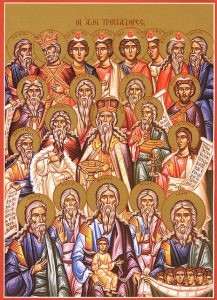 Meditation by the Very Rev. Dr. David Petras
Meditation by the Very Rev. Dr. David Petras
As we move toward Christmas, the Sunday before the great feast of the Lord’s Incarnation is day when we read the gospel giving us the genealogy of Jesus.
The Gospel this Sunday presents us with an abundance of names, all those who were the ancestors of Christ. By this we see that on this feast, the Son and Word of God becomes a part of the human family and a part of human history. In this Gospel Jesus is also given a name, the final verse tells us that the child will be known as Jesus – Savior. In verse 22, though, he is given the name “Immanuel,” “God with us.” This gives us the theological meaning of the feast, the incarnation signifies our deification. We all have names, but for the ancients, names had meanings, they did not simply give us an identification tag, but told us something of who we were. In that sense, we do not name ourselves, but we are given a name, we are all “called by name” by God, and so we enter into the ancestry of Jesus. The names are the forefathers of Jesus, but also the foremothers are mentioned: Tamar, who bore a son by trickery of Judah; Ruth, the grandmother of David, who left her people to follow Naomi; the unnamed wife of David, Bathsheba, who David married by arranging for the death of Uriah. We see, then, that even trough questionable and evil actions, as well as by faithfulness, Jesus becomes “the son given to us.” The greatest of the woman in his genealogy is, of course, Mary, his mother, who by her obedience cancelled the curse of Eve, and united God with humanity in her womb. Today, we celebrate the Son of Abraham, according to the Law, and the Son of David, the everlasting King, to whom even David bowed, and even the Son of exile, for we are all citizens of the spiritual, not the earthly, Jerusalem. Today we must be named as a follower of Christ.
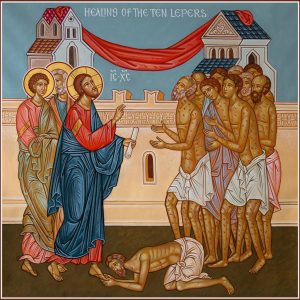 Meditation by Very Rev. Dr. David Petras
Meditation by Very Rev. Dr. David Petras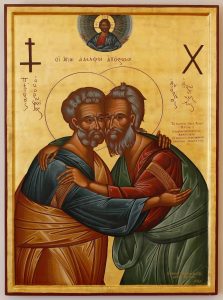 Today is the feast day of St Andrew.
Today is the feast day of St Andrew.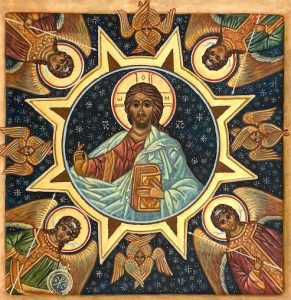 Meditation by Very Rev. David Petras Colossians 1:12-18
Meditation by Very Rev. David Petras Colossians 1:12-18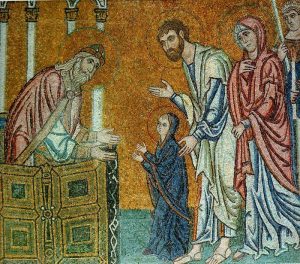 “The most pure Temple of the Savior; / the precious Chamber and Virgin; / the sacred Treasure of the glory of God, / is led today into the house of the Lord. / She brings with her the grace of the Spirit, / therefore, the angels of God praise her: / ‘Truly this woman is the abode of heaven.’” (Kontakion-Hymn of the Entry of the Theotokos into the Temple)
“The most pure Temple of the Savior; / the precious Chamber and Virgin; / the sacred Treasure of the glory of God, / is led today into the house of the Lord. / She brings with her the grace of the Spirit, / therefore, the angels of God praise her: / ‘Truly this woman is the abode of heaven.’” (Kontakion-Hymn of the Entry of the Theotokos into the Temple)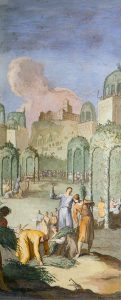 Meditation by Very Rev. Dr. David Petras
Meditation by Very Rev. Dr. David Petras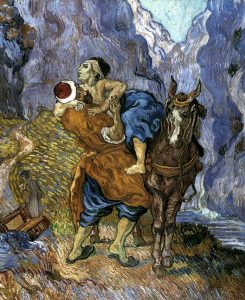 Meditation by the Very Rev. Dr. David M. Petras
Meditation by the Very Rev. Dr. David M. Petras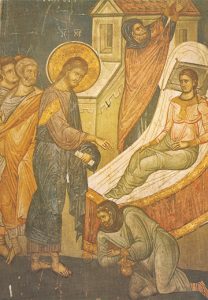 Meditation by the Very Rev. Dr. David M. Petras
Meditation by the Very Rev. Dr. David M. Petras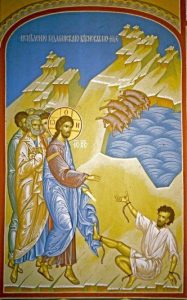 Meditation by the Very Rev. Dr. David M. Petras
Meditation by the Very Rev. Dr. David M. Petras